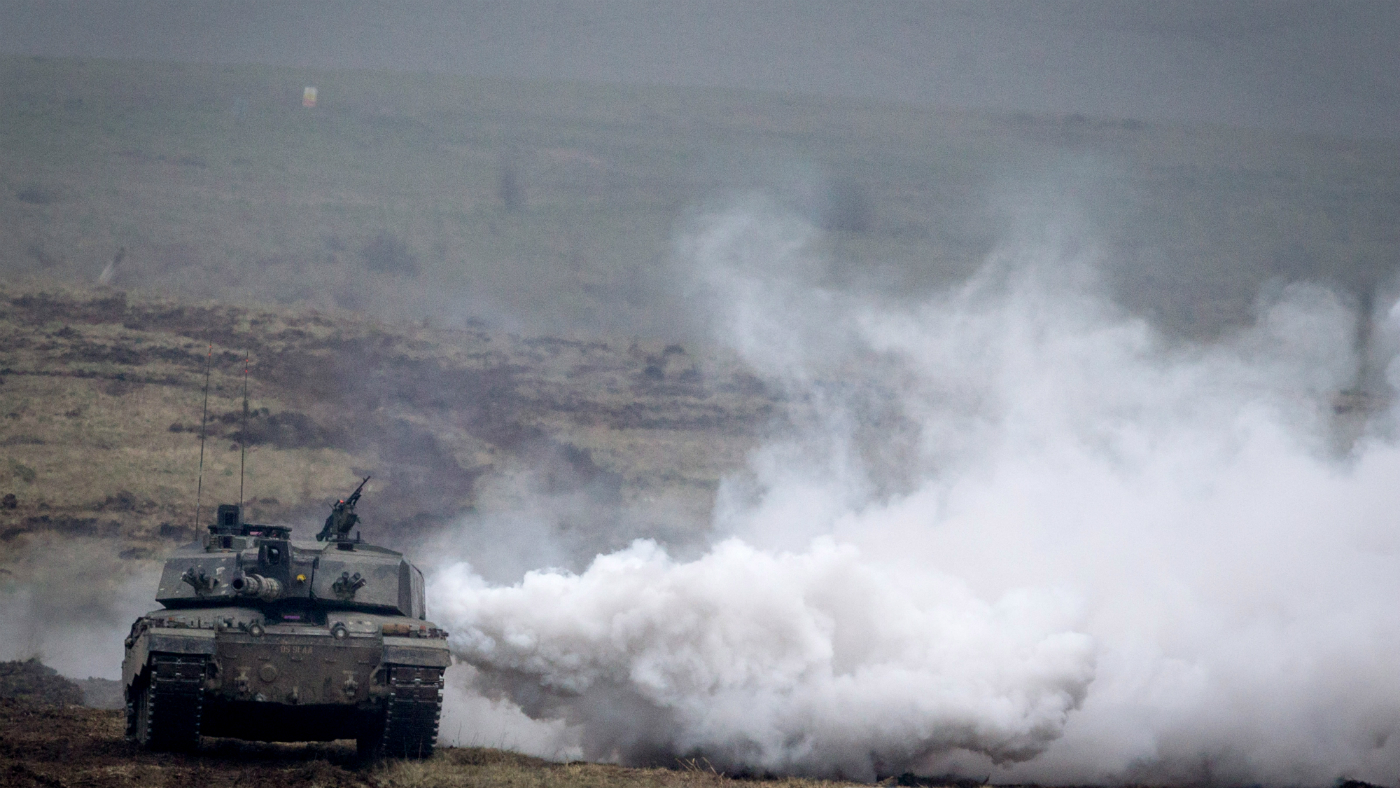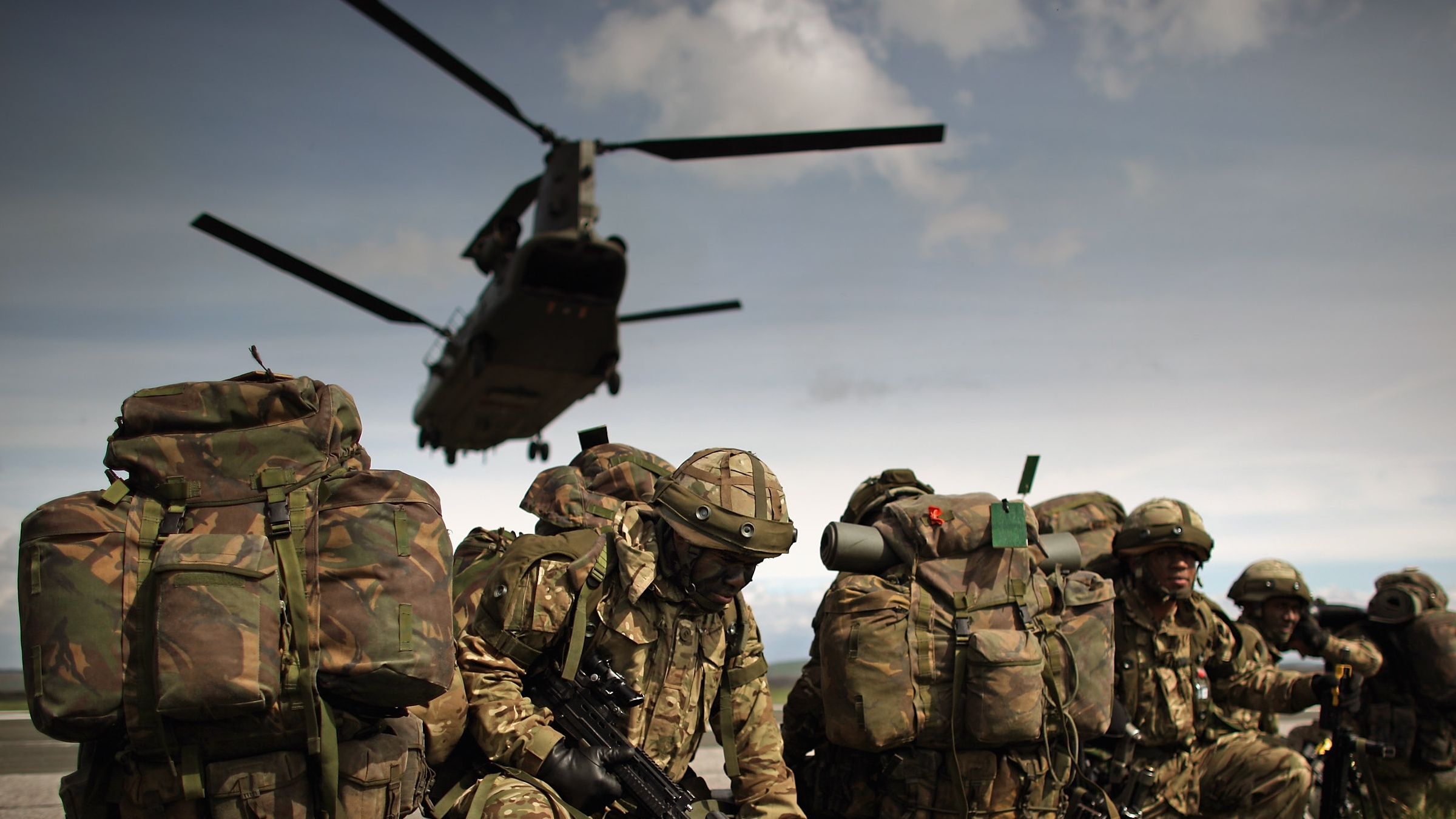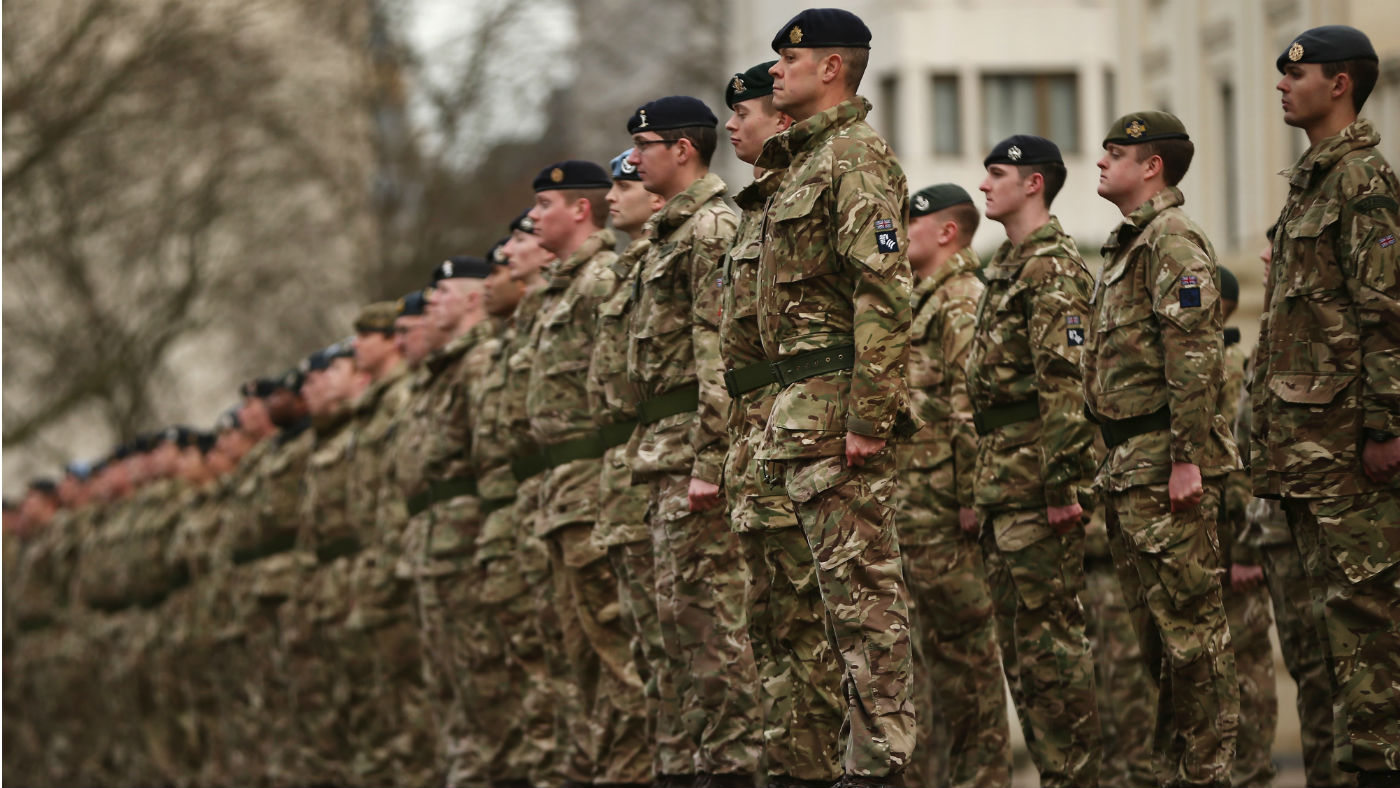Debate: is it time to scrap Britain’s tanks - or are Armed Forces being ‘eviscerated’?
Defence bosses criticise plans to channel funding into cyberwarfare as government reviews spending

A free daily email with the biggest news stories of the day – and the best features from TheWeek.com
You are now subscribed
Your newsletter sign-up was successful
Scrapping British Army tanks in a push to cut costs and prioritise cyberwarfare risks “eviscerating” the nation’s Armed Forces, a former defence chief has warned.
Getting rid of the UK’s “ageing fleet of armoured vehicles is reportedly being explored by the government”, after the Ministry of Defence called for cybercapabilities, space and other technologies to get more investment, says The Sun.
But Air Chief Marshal Jock Stirrup told The Times that the Armed Forces must not be seen as an “easy option” for spending cuts in the government’s ongoing defence and security review, which may also see troop numbers heavily cut and some air bases closed. So should the UK keep or ditch its tanks?
The Week
Escape your echo chamber. Get the facts behind the news, plus analysis from multiple perspectives.

Sign up for The Week's Free Newsletters
From our morning news briefing to a weekly Good News Newsletter, get the best of The Week delivered directly to your inbox.
From our morning news briefing to a weekly Good News Newsletter, get the best of The Week delivered directly to your inbox.
‘Tanks but no tanks’: the case for scrapping
The cost of upgrading Britain’s ageing fleet of 227 Challenger 2 tanks and 388 Warrior armoured fighting vehicles has “soared”, according to The Sun.
And while the Ministry of Defence’s budget is currently ring-fenced at 2% of GDP, the UK’s GDP is predicted to shrink considerably as a result of the ongoing economic downturn.
Defence Secretary Ben Wallace has previously denied that there will be cuts in the overall size of the army. But a defence source told The Times that “bold decisions” needed to be taken to “rebalance” defence interests and meet the new threats that Britain faces.
A free daily email with the biggest news stories of the day – and the best features from TheWeek.com
Wallace’s predecessor, Penny Mordaunt, warned last year that the “Challenger 2 has been in service without a major upgrade since 1998. During this time the US, Germany and Denmark have completed two major upgrades, whilst Russia has fielded five new variants with a sixth pending.”
Addressing a land warfare conference, Mourdaunt said that “Warrior is even more obsolete, and is 20 years older than those operated by our key allies. Since Warrior’s introduction in 1988, the United States and Germany have conducted four major upgrades and Russia has invested in three new variants.”
Military historian and journalist Max Hastings is now leading the renewed calls to ditch the UK’s fleet of ageing tanks.
“Tanks are still valued by almost every army in the world as mobile bastions,” he writes in an article for The Times. But “they are immensely expensive, and ever-more vulnerable to air power including drones and attack helicopters, and to cheap missiles, such as every guerilla force in the word possesses.
“The British Army would dearly like to sustain at least a modest tank force, but it faces brutal resource choices. Nobody should be sentimental about weapons of war.”
‘Keep tanks in the ranks’: the case against scrapping
Although getting rid of the tanks would be in keeping with the Army’s strategic objectives, Air Chief Marshal Stirrup told The Times that “my concern about this review is the overall economic and financial situation of the country in the post-Covid environment. We need a sound economy, but we don’t want to see it come at the price of eviscerating the country’s defence.”
“It’s a concern that the size of all of the Armed Forces has been dropping”, he said, adding that “while their capabilities have been increasing, you can’t be in two places at once. If you are too small the scale of what you are able to achieve becomes strictly limited.”
The Sun notes that “Britain had almost 800 tanks in 1990, with critics saying the lack could leave us vulnerable in a conventional war”.
The Times defence editor Lucy Fisher reports that “while options remain on the table to upgrade the Challenger 2 or to buy the German Leopard 2 tank, Britain is already sounding out Nato partners about the proposal to give up heavy armour and overhaul its military contribution to the alliance”.
But a senior British defence source said: “We simply will not be viewed as a credible leading Nato nation if we cannot field close-combat capabilities. It places us behind countries such as France, Germany, Poland and Hungary.”
The proposed move was “dressing up financial pressures as capability choices”, the source added.
The government’s integrated foreign policy, defence and security review is due to conclude in November.
-
 ‘Poor time management isn’t just an inconvenience’
‘Poor time management isn’t just an inconvenience’Instant Opinion Opinion, comment and editorials of the day
-
 Bad Bunny’s Super Bowl: A win for unity
Bad Bunny’s Super Bowl: A win for unityFeature The global superstar's halftime show was a celebration for everyone to enjoy
-
 Book reviews: ‘Bonfire of the Murdochs’ and ‘The Typewriter and the Guillotine’
Book reviews: ‘Bonfire of the Murdochs’ and ‘The Typewriter and the Guillotine’Feature New insights into the Murdoch family’s turmoil and a renowned journalist’s time in pre-World War II Paris
-
 The Week Unwrapped: martial lawlessness, asteroid action and statue sparring
The Week Unwrapped: martial lawlessness, asteroid action and statue sparringpodcast Should the culture of the British army face greater scrutiny? Can Nasa deflect asteroids away from earth? And should London’s statues be made more diverse?
-
 UK Armed Forces facing biggest shortfall in decade as global tensions rise
UK Armed Forces facing biggest shortfall in decade as global tensions riseSpeed Read Additional 8,200 full-time military personnel urgently needed to plug gap, warns National Audit Office